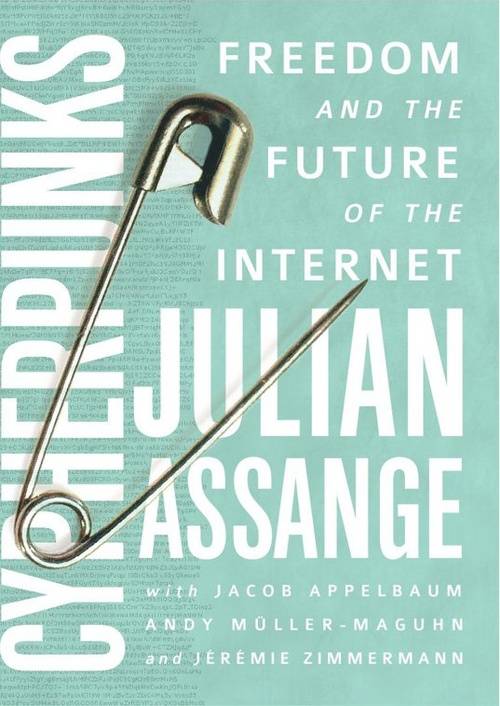
Cypherpunks — a quick, stirring, scary read — transcribes a wide-ranging conversation between Wikileaks co-founder Julian Assange, Jacob Appelbaum (Wikileaks/Tor Project), Andy Müller-Maguhn (Chaos Computer Club) and Jérémie Zimmermann (La Quadrature Du Net).
Edited together in thematic chapters (The Militarization of Cyberspace, Fighting Total Surveillance With the Laws of Physics, Private Sector Spying), Cypherpunks exceeded my expectations. I know some of the book's protagonists personally and know how smart and principled they are. But I was afraid, going into this, that what would emerge would be a kind of preaching-to-the-choir consensus, because all four of the participants are on the same side.
Instead, I found Cypherpunks to be a genuine debate, where each speaker's best arguments — well-polished, well-spoken, and convincing — were mercilessly tested by the others, who subjected them to hard questions and rigorous inspection. Most of our discussions about Wikileaks lack nuance, and they're often hijacked by personal questions about Assange. Whatever you feel about Assange, he is not Wikileaks — Wikileaks is an activity, not an organization, and its participants, including Bradley Manning, are engaged in something important and difficult and fraught, and there is a place for a debate about whether the tactics of Wikileaks best serve a the strategic end of a free and open Internet in a just and humane society.
The debate recorded in Cypherpunks — though leavened with humor and easy to follow — covers a lot of nuance of the sort that has been missing from the discussion. The wider points — that the universe's in-built mathematics favor the keeping of secrets because it is easier to encrypt a message than decrypt it, say — may dazzle, but the getting down to cases afterward, the chewing the point over and challenging it, that's where the book shines.
There aren't many titles that pack as much argument, ambiguity and theory into as small a package as Cypherpunks. It's a book you can read in an hour or two, but you'll be thinking about it for years.





